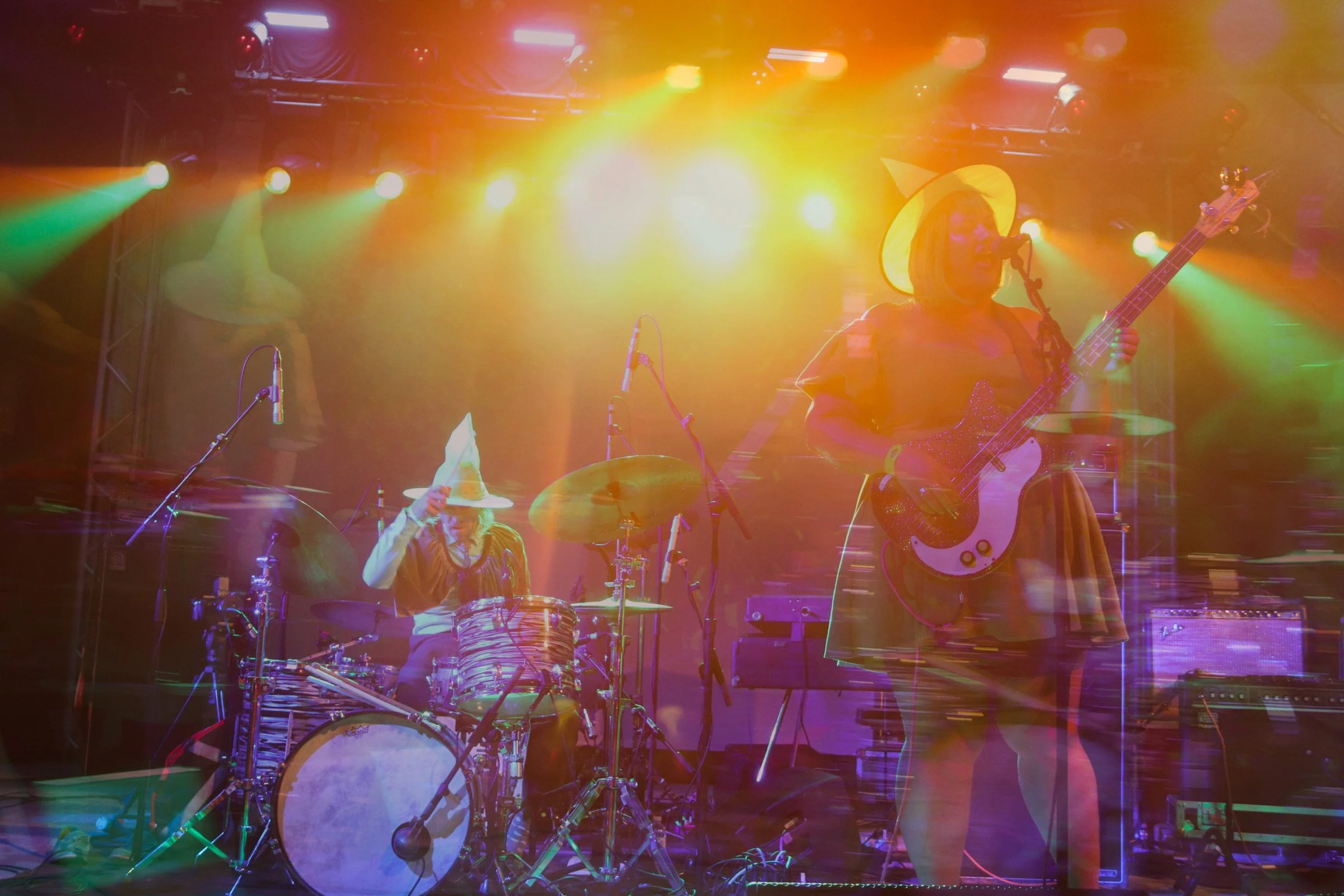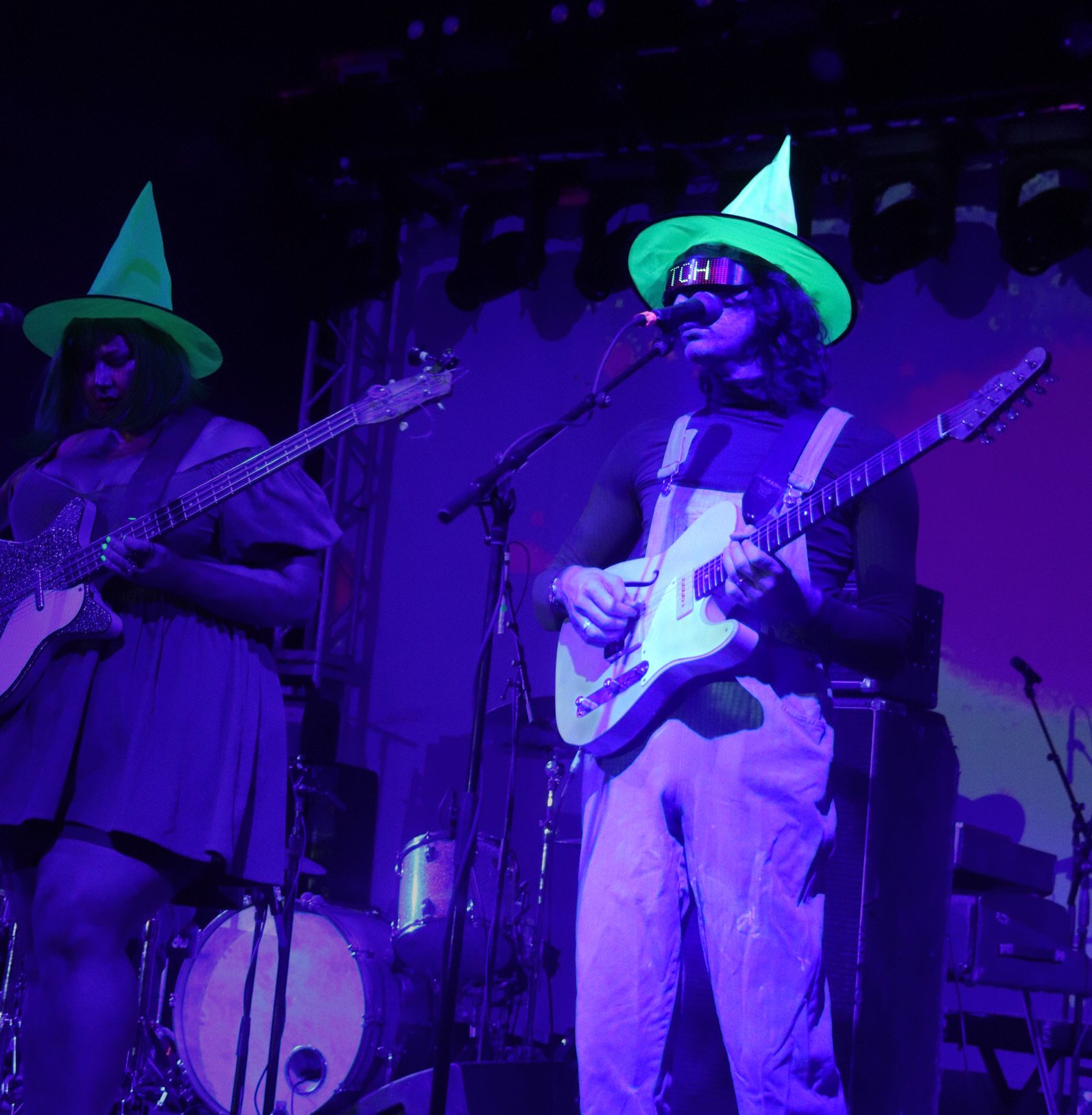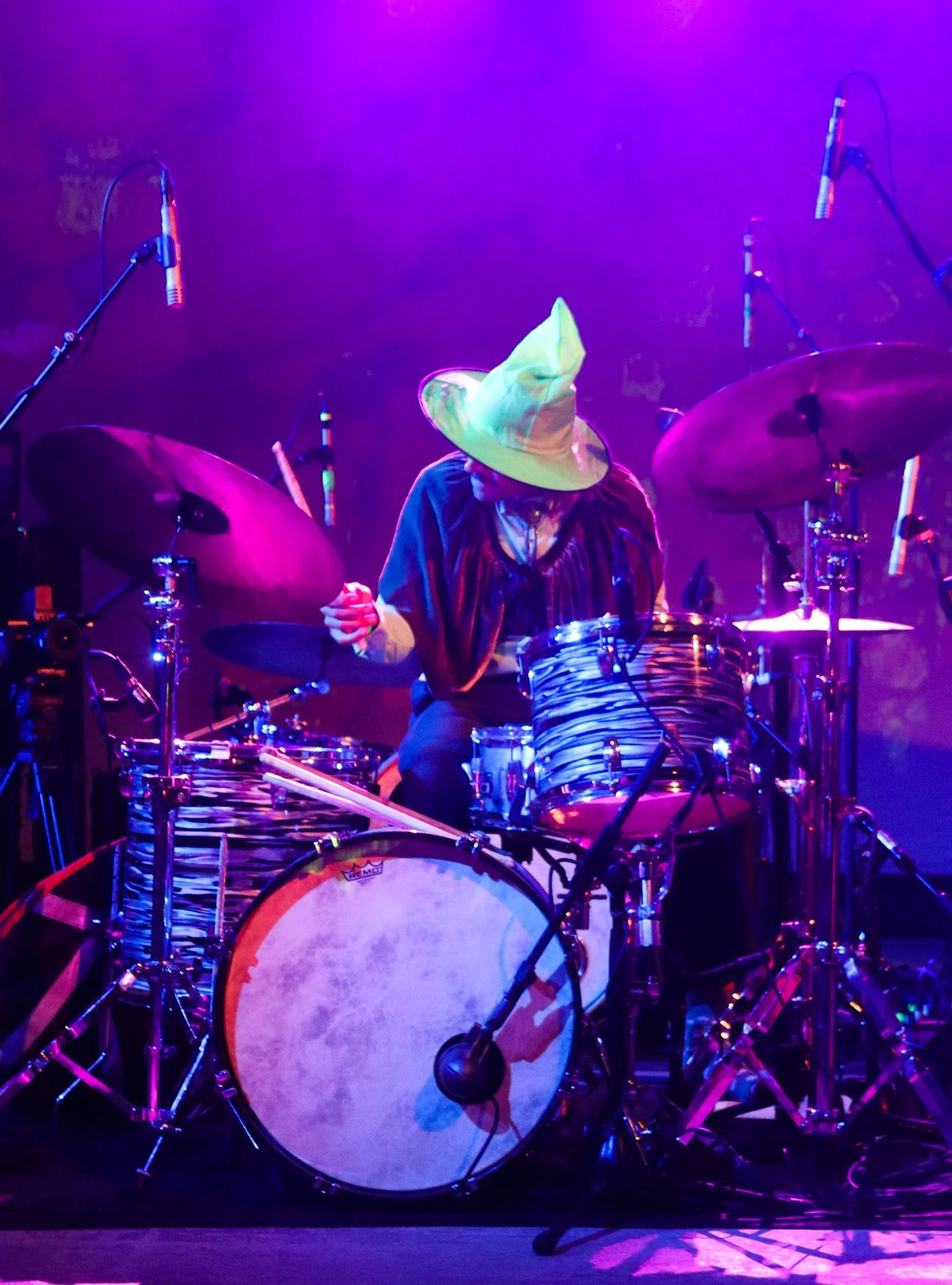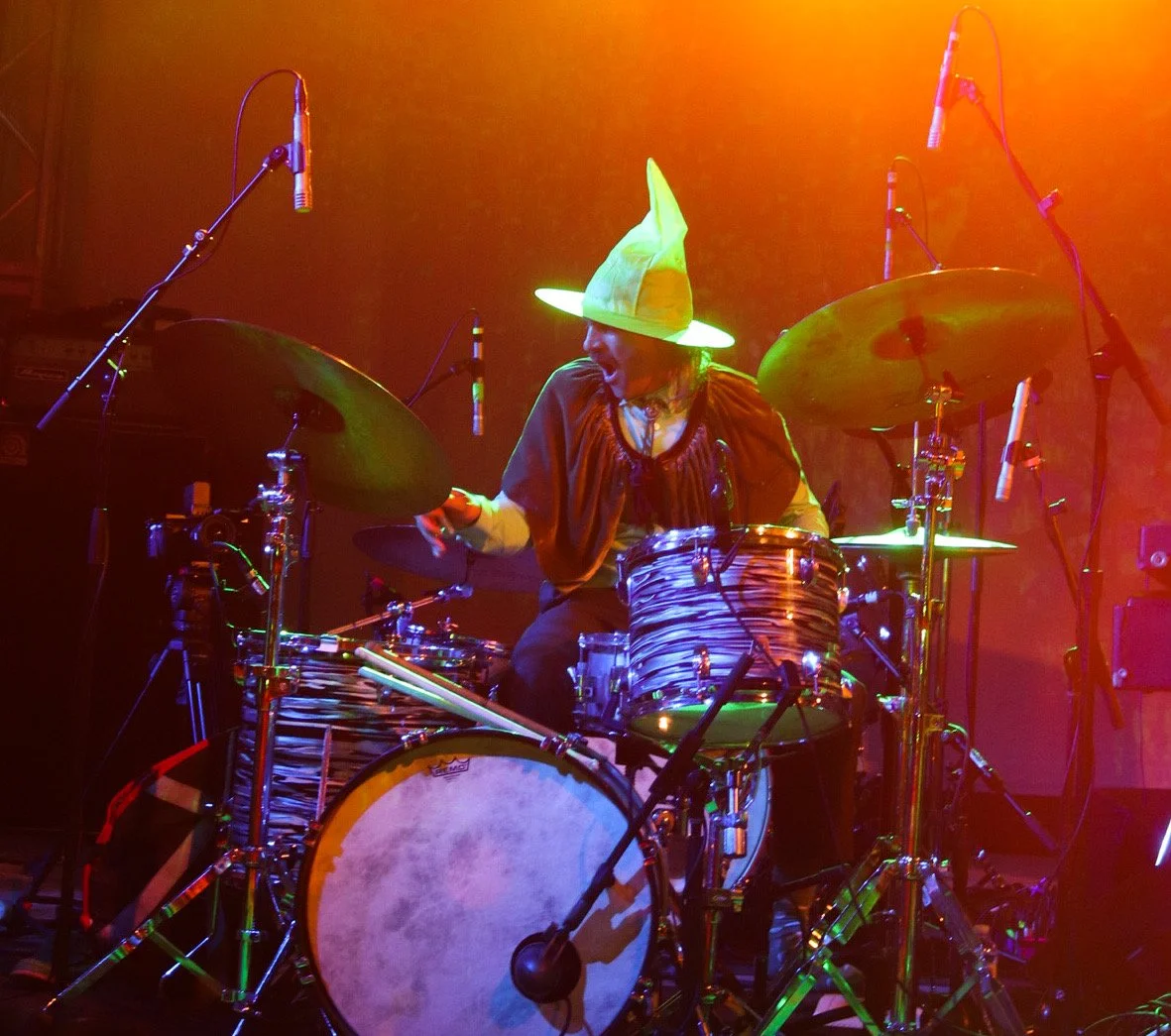SHANNON AND THE CLAMS:
THE MOON IS IN THE WRONG PLACE ALBUM REVIEW
On their fourth studio album, the Oakland-based band copes with tragedy through contemplative lyrics while maintaining their sonic psychedelic twist on garage rock.
Written by Katie Karp
Image courtesy of Easy Eye Sound
Shannon and the Clam's fourth studio album focuses on the sudden and tragic death of Joe Haener, who was frontwoman Shannon Shaw's fiance and a beloved friend to the rest of the band. At its core, it's a beautiful album with a bold, cinematic sound that copes with grief. While the lyrics are poignant and contemplative, the album maintains the group's retro and psychedelic twist on garage rock.
Using music to deal with heavy subjects is no novelty for the Oakland-based group. Their 2021 record, Year of the Spider, is coated with disturbing subjects that could pass as soulful love songs; "Mary Don't Go" concerns Shaw's forced removal from her apartment by her stalker, and "Vanishing" is centered around her father's battle against cancer. The Moon Is In The Wrong Place further proves the group's ability to turn grim and devastating events into deeply emotional, introspective tunes or thrilling grooves.
Opening with "The Vow," doo-wop sounds and fairytale lyrics transport the listener into the foursome's mystical world. "Beautiful guy with the sun in your eyes/I've been waiting, waiting for your love/Now you're all mine/For all time." Bells chime like a wedding and horns roar excitedly, matching Shaw's powerful voice. Still, the romantic, starry-eyed love story chronicled on the first track does not last forever. Stormy drums quickly crash in on the next track, "The Hourglass," proving that this fantastical love story is nearing its end.
While Shaw and the band yearn to flip the hourglass and bring back her epic love, the band's guitarist Cody Blanchard takes to the mic in "Big Wheel" – an uptempo, high-pitch fight against time – and reveals that she cannot stop or go back in time. Still, the album remains ambivalently optimistic. On "Oh So Close, Yet So Far," Will Sprott's starry piano keys are dreamy and hopeful, while Nate Mahan's drums thud like an anxiously beating heart. This instrumental dichotomy parallels Shaw's feelings about her lost love. While she sees Haener's legacy surrounding her through the birds, trees, and rainbows, she still longs for his physical body to return to life and be with her. "I am sorry, I am not yet satisfied/Cause I miss you right here by my side."
Not only are there clear doo-wop influences throughout the album, but "UFO" – with Sprott's baritone voice coupled with colorful lyrics –has clear Sgt. Pepper's undertones. "We went into a wormhole, and we're never going back/And now I walk the silver street/The sky of gold beneath my feet." The dissociative, galactic tune reminiscent of older psych-rock is a reminder of the group's ability to take listeners on a trip through space and time. "What You're Missing" is the group’s breakup song with time. The Clams realize that the clocks do not want to work in their favor, but the joke is on time. "The clocks resist you/seasons dismiss you/as you get left behind/Well, you don't know what you're missing."
"Real or Magic" is the seventh song on the record, and it grapples with whether Shaw's fantastic love story, which was tragically cut short, was just a dream. While the question lingers and looms, Shaw is ultimately certain that the memory is accurate. Dreamy, lucid sounds meet with alarms beeping on the next track, "The Moon is In the Wrong Place." In the titular track, the band is startled and struck with grief. They believe the tragedy connects to an astronomical -- in scope and celestially -- disruption.
"So Lucky" is a return from their space-rock trip to romantic, retro R&B sounds with lyrics that demonstrate a newfound acceptance and continued appreciation for the beloved life lost. In the tenth track, the group revisits the subject of time. Metronome sounds accompany playful yet longing lyrics in "Dali's Clock." The Clams want Haener back and look for signs of him, but they realize they come in strange forms, like a green stone: "It told me: Time is precious, time is void/life is precious, just enjoy." Though he has not returned or answered the specific messages from the afterlife, the sudden death reminds the group of the preciousness of life. Through "Bean Fields," the band embraces a certain youthfulness matched with a peppy drum bean and cheerful lyrics.
"In The Grass" is the record's shortest and perhaps best song. It's stripped down to an acoustic guitar, Blanchard's vocals, and echoey harmonies. The bareness of the song highlights Blanchard's profoundly soulful voice as well as the poetic lyrics. "Sorrow works like a map/You can hold the circle in your hand/But the record turns so fast/When the wheel is wrong/As your tongue is long/You can fill it up with song." Drums, bass, and keys return for the seductive and nostalgic "Golden Brown."
The record wraps up with the bittersweet "Life Is Unfair." Shaw accepts that the world around her is moving on, even though her love has died. "All the blossoms blooming/twilight looming/Without you on this Earth/Life is Unfair/Yet Beautiful." It's a step back from the fantasy worlds the group created on the album and a snap back into the sad reality of the beautiful world.










